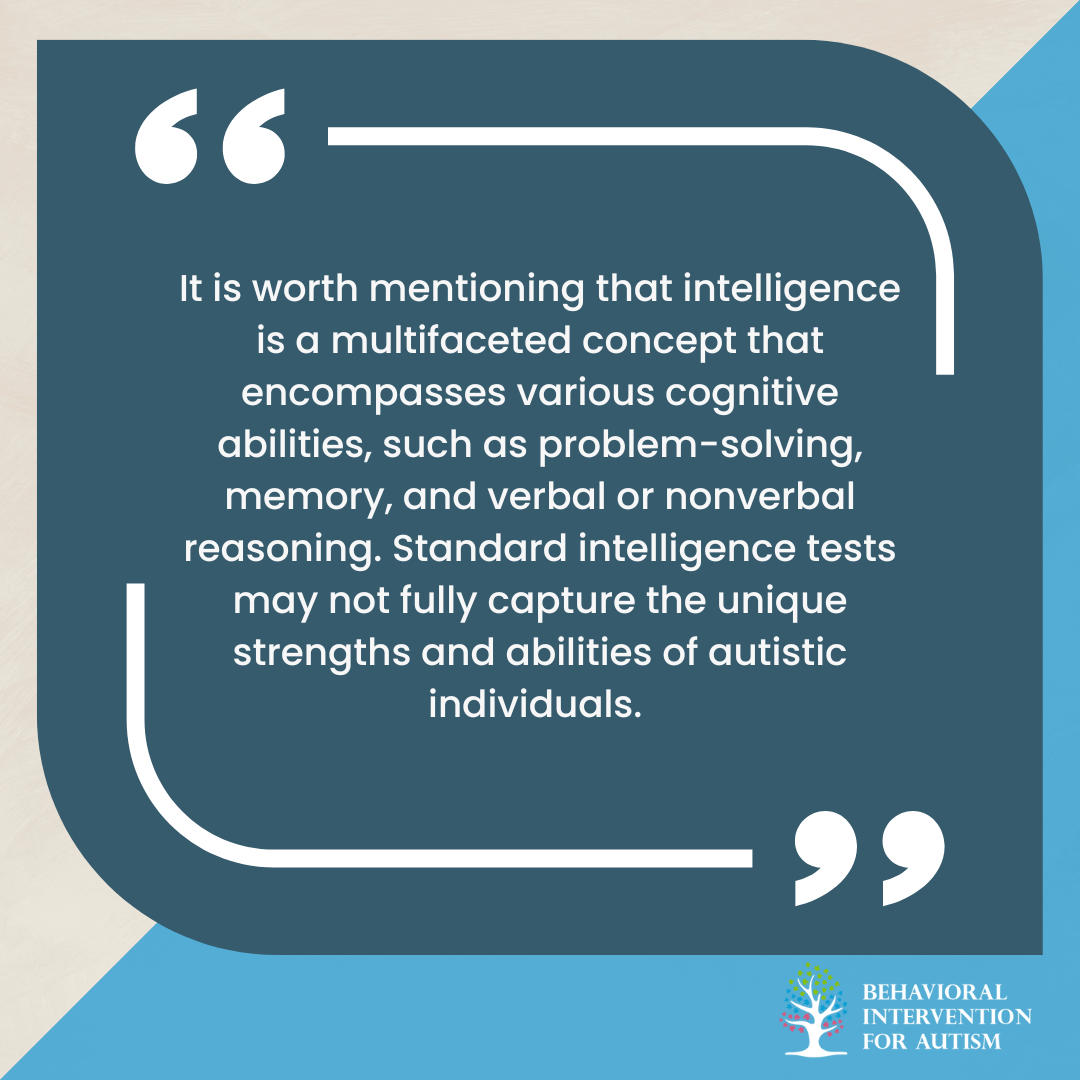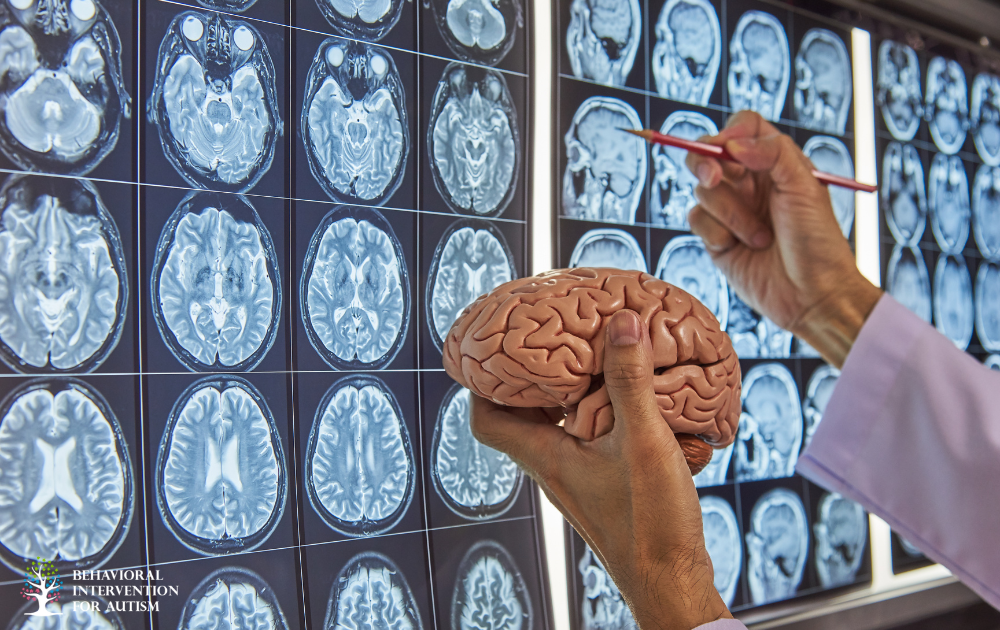
Table of Contents
The relationship between intelligence and autism has been a topic of interest and research. Scientists have discovered genetic links to intelligence, and many of these genes have been found in individuals on the autistic spectrum.
Researchers have made significant progress in identifying the genetic basis of intelligence. According to them, there are 40 new genes associated with human intelligence, and interestingly, many of these genes have been found in individuals with autism.
This finding suggests a positive genetic correlation between intelligence and autism.
Moreover, the genetic variants associated with higher intelligence are also associated with an increased risk for autism. This indicates that there is a relationship between the genetic factors that contribute to intelligence and those that contribute to autism.
So, does it mean that autistic people are indeed smart in general?
What to Know about Autism Intelligence
Contrary to the stereotype that autistic individuals are not smart, research has shown that there is a spectrum of intelligence levels within the autistic community. In fact, some individuals with autism exhibit high levels of intelligence.
An article from 2016 challenges the misconception that autism is solely associated with lower intelligence. Instead, it suggests that autism can be considered a disorder of high intelligence.
Recent studies have reported positive genetic correlations between autism risk and measures of mental ability, indicating that alleles for autism overlap broadly with alleles for high intelligence.
It is important to note that intelligence is not solely determined by one’s autism diagnosis. Autism is a complex condition that affects individuals in diverse ways, and intelligence varies among autistic individuals just as it does among neurotypical individuals.
Spectrum of Intelligence Levels
Autism is characterized by a wide range of cognitive abilities, and this includes intelligence. While some individuals with autism may have average or below-average intelligence, others may display above-average intelligence or even exceptional abilities in specific areas.
This spectrum of intelligence levels highlights the neurodiversity within the autistic community.
Therefore, it is essential to consider a broader range of cognitive skills when assessing intelligence in the context of autism.
Cognitive Abilities in Autism
Autism is a neurodevelopmental condition that encompasses a wide range of abilities and characteristics. The neurodiversity perspective emphasizes the idea that individuals with autism have unique strengths and abilities, including intelligence.
It is crucial to move away from the notion of intelligence being solely measured by traditional cognitive tests and to consider the diverse ways in which individuals with autism may demonstrate their intelligence.
This can include exceptional memory skills, attention to detail, pattern recognition, and specialized interests.
Historically, autism has been associated with relatively low intelligence as measured by standard cognitive tests. However, more recent research has challenged this assumption. Studies have shown that alleles associated with an increased risk of autism are also associated with increased intelligence among neurotypical individuals.
This suggests that the genetic factors contributing to autism may also be associated with higher cognitive abilities.
It is essential to consider the limitations of cognitive tests when assessing the intelligence of individuals with autism. Standard cognitive tests may not effectively capture the unique cognitive profile of individuals on the autism spectrum.
These tests often rely heavily on language and social interaction, areas that may be challenging for individuals with autism. As a result, the intelligence of individuals with autism may be underestimated by traditional measures.
Autism and Giftedness
Historically, it was believed that most individuals with Autism Spectrum Disorder (ASD) had below-average intelligence. However, more sophisticated IQ tests and research have shown that there is a subset of individuals with ASD who exhibit extraordinary gifts in mental acuity and computation, commonly known as autistic savants.
Savant Abilities in Autism
Autistic savants are individuals with autism who possess exceptional skills in specific areas, such as mathematics, music, art, or memory. These abilities can be quite remarkable, and the individuals may display an exceptional depth of knowledge and performance in their specific area of talent.
While savant abilities are more commonly observed in individuals with ASD, it is important to note that not all individuals with autism are savants. The prevalence of savant abilities within the autistic population is relatively low, estimated to be around 10% or less.
However, when present, these abilities can be truly remarkable and highlight the unique cognitive profiles that can exist within the autism spectrum.
Gifted Individuals with Autism
In addition to savant abilities, there are also instances where individuals with autism exhibit overall high intelligence. Some individuals with ASD may demonstrate advanced cognitive abilities, exceptional problem-solving skills, and a deep capacity for learning. These individuals are often referred to as gifted individuals with autism.
A study conducted by Yale University and Oregon State University focused on eight child prodigies, and interesting parallels were found between participants with ASD and neurotypical participants.
These similarities included an inclination toward obsession, late development of verbal skills, and difficulties with social interaction. Additionally, half of the participants had family links to ASD, suggesting a broader autism spectrum than what current diagnostic criteria specify.
It’s important to understand that intelligence is a complex trait influenced by various factors, including genetics, environment, and individual differences. While there are instances of high intelligence and savant abilities within the autistic population, it’s essential to recognize and support the diverse range of strengths and abilities that individuals with autism possess.
Brain Structure and Intelligence
The connection between brain structure and intelligence plays a significant role in understanding the relationship between autism and intelligence.
Research has found some differences in the physical structures of the brain that are visible in some people with autism. These differences can provide insights into the unique cognitive abilities observed in individuals on the autism spectrum.
Brain Development in Autism
Studies have shown that there are differences in brain development in individuals with autism. One notable finding is the combination of quicker brain growth in early childhood and thinning of cortical tissues later on. This unique pattern of brain development could potentially lead to an increase in the ability to process more detailed information.
It may also contribute to characteristics such as hyperfocus and limited interests that are observed in some individuals with autism.
Synaptic Connections in Autism
The intricate network of synaptic connections in the brain is crucial for cognitive functioning and intelligence.
Research suggests that individuals with autism may exhibit differences in the rate at which neurons and synapses fire and are pruned. In a study titled “Autism as a Disorder of High Intelligence“, it was proposed that for individuals with average intelligence, the synapses would not fire as quickly as observed in some individuals with autism.
Some studies have found a link between greater intelligence and the accelerated firing and pruning of neurons and synapses in certain individuals with autism. This accelerated process in some autistic children could potentially contribute to higher IQ scores and enhanced cognitive skills.
Autistic Intelligence Studies
The intelligence of individuals with autism has been the subject of various research studies. These studies aim to uncover the relationship between autism and intelligence, shedding light on the unique cognitive abilities and characteristics of autistic individuals.
Recent studies have provided valuable insights into the relationship between autism and intelligence. One notable finding is the positive genetic correlations between autism risk and measures of mental ability. In other words, there is a genetic link between autism and intelligence.
Additionally, research has shown that polygenic alleles, which have small effects but collectively increase the risk of autism, are also associated with higher intelligence among neurotypical individuals. This suggests that certain genetic factors contribute to both autism and intelligence.
Positive assortative mating, which refers to the tendency of individuals with similar traits to partner and reproduce, is notably stronger for intelligence compared to other human traits. This mating pattern helps maintain additive genetic variation for intelligence and can contribute to the presence of “extreme” intelligence phenotypes.
Furthermore, certain professions that involve systemizing, such as engineering, the physical sciences, and mathematics, are more prevalent among individuals with autism. These professions are also associated with relatively high IQs or strong correlates of IQ.
This suggests that there may be a connection between autism, intelligence, and specific cognitive abilities.
Neuronal Firing Rates in Autism
Another area of research focuses on neuronal firing rates in autism. Neurons in the brain communicate through electrical impulses, and the firing rates of these neurons play a crucial role in cognitive processes. Studies have investigated whether there are differences in neuronal firing rates between individuals with autism and neurotypical individuals.
While research in this area is still ongoing, some preliminary findings suggest that individuals with autism may exhibit altered neuronal firing rates compared to neurotypical individuals. These differences may contribute to the unique cognitive profile observed in autism.
Understanding the relationship between autistic intelligence and neuronal firing rates can provide valuable insights into the underlying mechanisms of cognitive processing in individuals with autism.
The findings from various studies contribute to our understanding of the complex relationship between intelligence and autism. They highlight the genetic links, cognitive abilities, and unique characteristics associated with intelligence in individuals with autism.
However, it is important to note that intelligence is diverse within the autism spectrum, and individual abilities can vary significantly.
Further research is needed to gain a comprehensive understanding of the intelligence patterns in autism and how they contribute to the strengths and challenges experienced by individuals on the spectrum.
At Behavioral Intervention for Autism, we provide the resources and guidance you need to confidently navigate behavioral intervention strategies. We offer high-quality ABA therapy in Florida and help equip parents with the knowledge they need to advocate for their child’s needs. Get in touch to learn more and start making a positive impact on your child’s development.
Sources:
https://www.appliedbehavioranalysisedu.org/is-autism-associated-with-higher-intelligence
https://www.ncbi.nlm.nih.gov/pmc/articles/PMC4927579
https://www.autismparentingmagazine.com/autism-connected-to-intellect
https://www.dailymail.co.uk/sciencetech/article-4534306/People-smart-genes-likely-autism.html
- 9 Common Obsessions of Children With Autism You Should Know - February 25, 2025
- What is Neurodiversity? A Guide to Embracing Differences - February 25, 2025
- Understanding Hyperfocus in Autism: What It Means and Why It Happens - February 25, 2025





